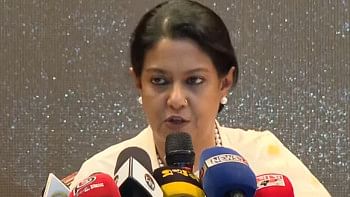Ten Things You Didn't Know About ASHFAQUE NIPUN

1. What inspired you to become a director?
I tried many different things to begin with before trying my hand at direction. I think of myself as a very good liar. When I was a kid, I realized I could get people's attention easily when I told interesting lies, but white ones. This made me a storyteller. My main trigger was a workshop with Anisul Haque and Mostafa Sarwar Farooki at Chittagong Film Centre in 2002. After that, I felt like I wanted to be a storyteller by profession.
2. What was your first production as a director?
My first production, titled '2 in 1' was in 2006. This was almost based on a real story, told from two different perspectives by two directors, I also starred in it.
3. What is your most favourite production of all time?
In the world of Bangladeshi television, my favourite one is 'Spartacus '71', produced in 2008, by Mostafa Sarwar Farooki.To me, amongst all the different works on Bangladesh's Liberation War, be in on TV or celluloid, this is the best of all. In the world of films, 'Elite Squad', both the first and its sequel (directed by José Padilha), are my favourites. The movies show how a security force called the Elite Squad was put together to protect the Pope during his visit to Brazil, which was necessary since Brazil was overrun with crime and violence. The first movie shows the squad's successes and popularity. But, the sequel shows how the Elite Squad abuses their power and becomes the problem themselves. I could not help but appreciate how similar the story is to our very own Rapid Action Battalion (RAB).
4. Who have you enjoyed working with the most?
It is very difficult to mention one person! There are so many people I enjoy working with. But if I have to choose one, then its Zahidul Haque Apu, he is a Radio Foorti RJ by profession, but also an actor and has worked with me on several television fictions.
5. What is your most embarrassing memory as a director? Did you ever make a mess of things?
In 2007, I really liked an external shooting location in Uttara, Dhaka. I thought it was ideal, and I made all the arrangements for the scene to be shot there. On the day of the shooting, I found out that the house did not have the required power line! We needed a 440 KV electricity connection, but the house had a 220 KV one (which common houses have). The embarrassing part was that I was trying to convince my crew that we have to manage with this. They informed me that this was not enough to even turn on the shooting lights! I was so ignorant, that the crew had to actually connect the equipment and turn on the switches to show me that the lights would not turn on. I learnt a big lesson that day, and obviously had to pack up and change the location.
6. What are some of the common challenges you face as a director in Bangladesh?
Television and film, as industries in Bangladesh, do not have all its support functions. They are incomplete as industries. As a director, I have to be in charge of every component imaginable, starting from fundraising, casting, marketing, getting the output signed with a television network. If there were specialists who could take care of these others facets, then I could better focus on my work as a director.
7. In your opinion, what is missing from the overall media today?
As a nation, I think Bangladeshis have become very black and white in terms of what they want on television, in movies or in the media in general. And this was not always the case; you can't talk as much about reality today as you could before. I think what's missing is the appetite to look at the negative sides of society, the stomach to take all the dark corners along with what's good. This means, as a director, my options are very limited, and I know that I have to restrict my thinking in order to make sure my productions see the light of day.
8. Television directors are seen to try their hand at making movies. Do you think television direction is a starting point to get to movies?
Yes, true. Bangladesh does not have any formal process or institute to groom these talents, rather, people start by assisting someone who is already established. For example, I started working with Mostafa Sarwar Farooki, and learnt step-by-step working on the job. So, yes, often people will start with television productions before trying their hand at movies.
9. What would be your word of advice for those who want to enter the world of making TV fiction?
I would say you have to make sure you actually have the passion for it, and have foresight, because you cannot expect to make good money in the first few years. You have to be very hard working, because you have to micro-manage every part of the production you are in charge of.
10. Where do you see yourself ten years from now?
In ten years, I hope to have visited twenty countries, and hope to be making movies!
Interviewed by Zakir Mushtaque

 For all latest news, follow The Daily Star's Google News channel.
For all latest news, follow The Daily Star's Google News channel. 



Comments